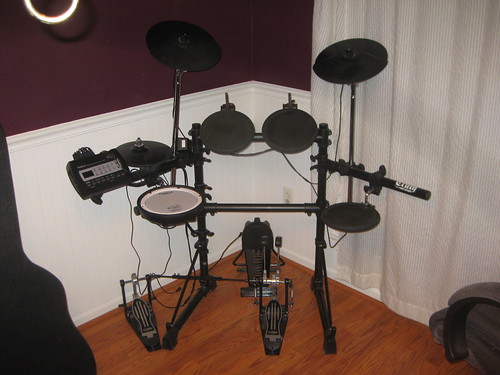
Image : http://www.flickr.com
Are you interested in music? If you answered yes, this article has the secrets that will guide on how to play drums. Today there are many sites that offer drum lessons for beginners and a reasonable fee. If you have the passion to play the drums, then your dream could become reality. Many people have shown interest and remains to be seen how well they can find these classes will be of use. Tips for beginners to help you pass through a drumThe lessons are covered in depth, thanks to this article.
First, you determine your dream and live with it. Select the search engine of your choice and are looking for reliable online sites that offer music and schools of drum. The school of choice should be the teaching of financial capacity and time. Go for the package that best suits your needs.
The second step is to determine your needs. Let the professionals better battery and newer.After gathering information on the drum, sticks and other materials can be the best you must and can go for shopping. Learning to play the drums is not only a physical process, but also a mental process. You have to prepare enough, because you use your ears properly. We must sharpen hearing for a student to succeed. The difference between hearing and listening is very important. Hearing is the reception of any sound, istransmitted to the news of the exact perception of what you hear. Be taught the fundamentals and techniques on how to play drums is only part of music theory. As a student, you have to learn, improve and develop your aural skills through ear training.
Online training for beginners drum lessons rhythm is good, because progress at your own pace. People who are professionals in training, and allow you to go through the whole process on your schedule. You decide what timelearn according to your budget. This makes the process similar to your adventure and enjoy quite well. Discipline and patience are personal characteristics, have the student has a good music. You will find the beginner drum lessons too easy and simple to understand, if you follow the instructions. You can count not only on notes supplied by the teacher, but research and read a lot. If you polish your skills you need to look for more styles and genres. ThisAsks thirst for knowledge extraction.
Understanding how the battery is not a science and art. You need to do more practice. Before seeing other professionals do and then learn from them, it all started with drum lessons beginner like you. You can source for DVD and CD carrying out such teachings e. Do not forget how much practical work is expected of you. Stay motivated and never give up, despite numerousChallenges. If you understand how to play the drums, then you are set for the set great pleasure.



